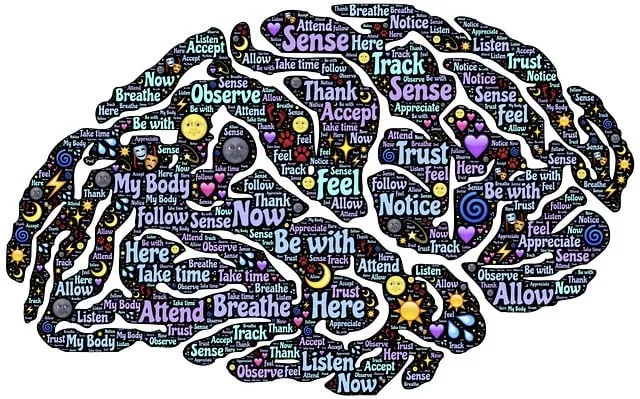Kaiser Permanente behavioral health services Westminster are tackling the stigma around mental illness through multi-faceted initiatives. These include training healthcare providers, a podcast series sharing personal stories, and programs like Inner Strength Development. By engaging communities with educational workshops, open dialogues, and media representation, they aim to break down stereotypes, foster empathy, and encourage early intervention. Support networks, family involvement, and collaborative efforts further empower individuals and families to access behavioral health services without stigma.
Mental illness stigma remains a significant barrier to access and recovery. This article explores targeted efforts to reduce this pervasive social problem, examining strategies employed by organizations like Kaiser Permanente’s behavioral health services in Westminster. From community engagement initiatives to media representation shifts, we delve into evidence-based approaches that foster understanding, empathy, and normalization, ultimately improving mental healthcare outcomes.
- Understanding the Impact of Stigma on Mental Health: A Focus on Kaiser Permanente's Approach
- Identifying and Challenging Stereotypes: Strategies for Community Engagement
- Integrating Education and Awareness Programs: A Step Towards Normalization
- The Role of Media Representation in Shaping Public Perception
- Empowering Support Networks: A Collaborative Effort to Reduce Stigma within Families and Communities
Understanding the Impact of Stigma on Mental Health: A Focus on Kaiser Permanente's Approach

Stigma surrounding mental illness can have profound effects on individuals’ willingness to seek help and maintain recovery. It often leads to social isolation, discrimination, and a cycle of negative self-perception, hindering one’s ability to access essential Kaiser Permanente behavioral health services Westminster. Recognizing this, Kaiser Permanente has taken significant steps to combat stigma through comprehensive initiatives.
One notable approach involves empowering both patients and healthcare providers with knowledge and understanding. This includes the Healthcare Provider Cultural Competency Training, which equips professionals with the skills to offer empathetic, non-judgmental care. Additionally, Mental Wellness Podcast Series Production serves as a platform to share personal stories, dispel myths, and promote mental health awareness throughout the community. Furthermore, Inner Strength Development programs focus on building resilience and fostering a sense of belonging, challenging stigmatizing narratives and encouraging open conversations about mental wellness.
Identifying and Challenging Stereotypes: Strategies for Community Engagement

Reducing stigma surrounding mental illness requires a collective effort to identify and challenge deeply rooted stereotypes within communities. One effective strategy involves engaging local neighborhoods through educational initiatives, workshops, and open dialogues. For instance, Kaiser Permanente behavioral health services in Westminster have successfully hosted community events that promote understanding and empathy towards individuals facing mental health challenges. By providing a safe space for conversations, these gatherings encourage participants to question preconceived notions and embrace diverse perspectives.
Community engagement goes beyond informational sessions; it involves fostering positive thinking and emotional intelligence. Mental health professionals can play a pivotal role in this process by conducting risk assessments to identify potential barriers and tailor interventions accordingly. Equipping community members with the skills to recognize warning signs, offer support, and navigate resources effectively contributes to a culture of compassion and early intervention, ultimately breaking down the walls of stigma one interaction at a time.
Integrating Education and Awareness Programs: A Step Towards Normalization

Integrating education and awareness programs is a powerful strategy to reduce the stigma surrounding mental illness, as it helps foster understanding and acceptance within communities. These initiatives, often led by organizations like Kaiser Permanente behavioral health services in Westminster, play a pivotal role in normalizing conversations about mental wellness. By incorporating workshops, seminars, and interactive sessions, these programs empower individuals to recognize the value of seeking support for their emotional well-being.
Through educational outreach, people can learn about various aspects of mental health, including different conditions, symptoms, and available treatment options. This knowledge breakdown challenges stereotypes and encourages early intervention. Moreover, these efforts facilitate open dialogues, promoting positive thinking and encouraging individuals to embrace their journeys towards recovery with support from specialized professionals, such as those involved in risk management planning for mental health practitioners.
The Role of Media Representation in Shaping Public Perception

Media representation plays a pivotal role in shaping public perception about mental illness. Positive and accurate portrayals in films, television shows, and news media can significantly reduce stigma by humanizing individuals living with behavioral health challenges. Organizations like Kaiser Permanente behavioral health services Westminster have recognized this impact and actively engage in initiatives to promote understanding. By showcasing diverse narratives and portraying recovery as a feasible journey, media has the power to encourage empathy and dispel myths, fostering an environment where those struggling feel less isolated.
Effective communication strategies, such as those advocated by Kaiser Permanente, emphasize open dialogue and education. Representations that reflect reality help people connect with experiences they may recognize, whether it’s managing stress or grappling with emotional regulation issues. This, in turn, encourages individuals to seek support for their behavioral health needs, knowing they are not alone. Through these media-driven shifts, communities can better understand the complexities of mental illness and promote effective stress management techniques, ultimately reducing the societal stigma associated with behavioral health services.
Empowering Support Networks: A Collaborative Effort to Reduce Stigma within Families and Communities

Empowering support networks play a pivotal role in reducing mental illness stigma within families and communities. By fostering open conversations about mental health, loved ones can provide a safe space for individuals to share their experiences without fear of judgment. Organizations like Kaiser Permanente behavioral health services Westminster are at the forefront of these efforts, offering resources and programs designed to educate and support both patients and their families.
Through collaborative initiatives, healthcare providers, community leaders, and family members work together to promote cultural sensitivity in mental healthcare practice. This includes enhancing healthcare provider cultural competency training and encouraging inner strength development within individuals facing mental health challenges. By integrating these strategies into the broader stigma reduction narrative, communities can create a more inclusive environment where everyone feels valued and supported in seeking appropriate care.
In tackling mental illness stigma, a multi-faceted approach is essential. By combining education, media representation, community engagement, and supportive networks, as demonstrated by Kaiser Permanente’s behavioral health services in Westminster, we can foster a more accepting society. Each component plays a vital role in normalizing mental health discussions and reducing the isolation often experienced by those affected. Through collaborative efforts, we can create a world where individuals with mental health challenges are supported rather than stigmatized.






